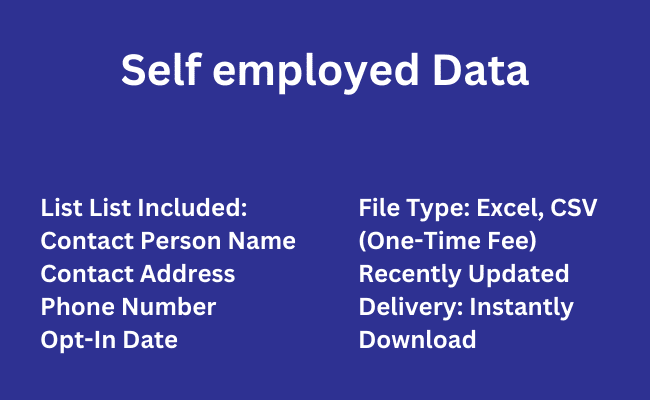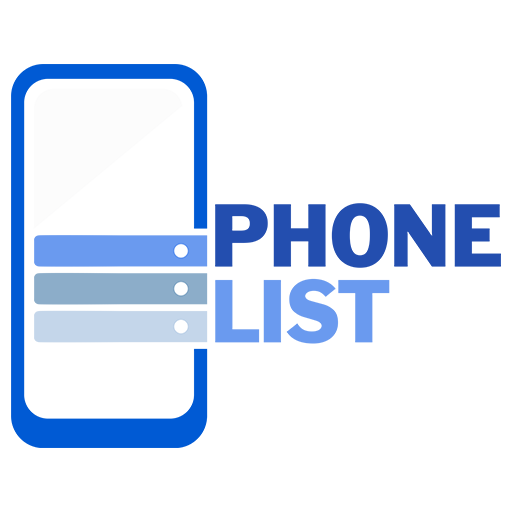Phone List » Self employed Data
Self-employed Data
Self-employed Data is a big collection that has a list of people who work for themselves. These people don’t have a boss—they are their boss. They might run a small business, do freelance work, or offer special services to others. Imagine you have a list of all your friends who like to do different jobs, like babysitting, mowing lawns, or selling handmade crafts. The self-employed Data is like that, but it includes lots of people from all over.
This Data has important information about each self-employed person. It might include their name, what kind of work they do, and how to contact them. This is very helpful because it makes it easy for people and businesses to find the right person for a job they need done. For example, if a company needs someone to paint a mural on their building, they could look in the self-employed Data to find a talented artist who does that kind of work.
The self-employed Data helps businesses save time. Instead of searching all over the internet or asking around, they can just check this Data and find the person they need quickly. It’s like having a super-smart helper who knows exactly where to find the best people for different jobs.
Self-employed Data User List

Self-employed Data User list is a special list that comes from the big self-employed Data. This list includes people who use the Data a lot to find work or offer their services. This user list is very useful for businesses that need skilled workers for special projects. For example, if a company is planning a big event and needs someone to take pictures, they can look at the user list to find a photographer who has experience and is available. It’s like knowing which of your friends is the best at taking pictures and asking them to be your photographer for the day.
The self-employed Data user list also helps businesses keep in touch with the workers they’ve hired before. If they had a great experience with someone, they can easily find them again for future jobs. It’s like keeping a list of your favorite babysitters or tutors so you know exactly who to call when you need help. The user list also makes sure that businesses are reaching out to the right people. If a company knows that someone is good at building websites, they can contact them for web design projects.
Purchase Self-employed User Data
Sometimes, businesses want to buy the self-employed user Data. This is like getting a special map that shows them where to find talented people who might want to work with them. For businesses, this Data is very valuable because it’s packed with details about self-employed workers who have special skills. Before buying the Data, businesses need to make sure it’s accurate and up-to-date. It’s like checking a special map to make sure the special is still there before you go looking for it. If the Data is outdated, the business might contact unavailable people, leading to disappointment.
Once a business buys the Data, it can use it to find new workers and offer them jobs. For instance, a company needing website article writers could use the Data to find skilled writers. Then, they can send those writers a job offer, just like giving someone a special invitation to a fun event. Buying the Data also helps businesses discover new opportunities. A company might discover skilled workers in a new area through its Data, revealing untapped potential beyond its usual focus.
